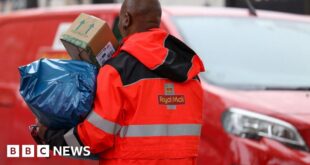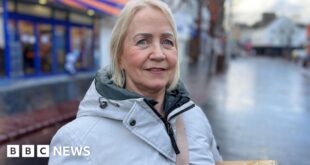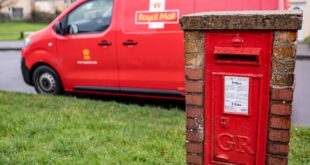2020 was a volatile and unpredictable year for businesses large and small. In a sink-or-swim situation, the swimmers were those who responded fairly quickly to the pandemic and managed to come up with creative and innovative solutions.
This often involved pivoting to an entirely new model, according to Shoreditch-based Chris Sheldrick, co-founder and CEO of geocode system startup what3words, an alternative to Google Maps.
He told City A.M. all the signs are there for drones and delivery robots to get their long-awaited breakthrough in the UK this year.
Read more: Global investors flock to London in ‘golden age’ for tech
Drones
With delivery and pick-up making up around 60 per cent of operational costs, Sheldrick said that, in 2021, “we’ll be hearing a lot more about unmanned aircraft systems, specifically delivery drones and robots.”
He singled out Starship Technologies in Milton Keynes, as it delivered food to almost 200,000 people during last year’s first lockdown.
Meanwhile, Amazon announced a new team dedicated to develop, its own robot delivery service while Royal Mail said last month it is carrying out a done delivery trial on Scotland’s Isle of Mull.
“Intelligent routing is another technology I’m calling out specifically, with more packages being delivered, and also returned, machine learning and artificial intelligence will offer game-changing efficiencies,” Sheldrick said.
“Just as ride-hailing companies predict and respond to surges in demand, logistics providers will increasingly rely on artificial intelligence to dynamically optimise routing, estimate delivery times, plan capacities and allocate resources a step ahead of when they’re needed,” he explained.
Read more: Exclusive: UK tech still needs the EU, says TechUK boss
Multi-channel fulfillment
Since many consumers base their decision who to shop on safety and convenience, Sheldrick is convinced that the ability to offer services such as online shopping, contactless payments, curbside pickup, easy returns and home delivery will decide the fortunes of businesses big and small.
“While small businesses are receiving the support of their local communities, many have had to change their business model entirely to survive,” he said.
He took Mossgiel Farm in Ayrshire, Scotland, as an example of a company that has pivoted from supplying dairy produce to restaurants, to delivering directly to rural homes.
Read more: Grocery delivery app Weezy raises $20m for London expansion
Source link



